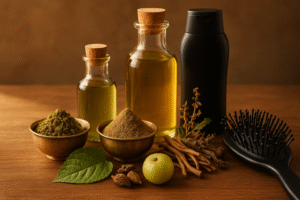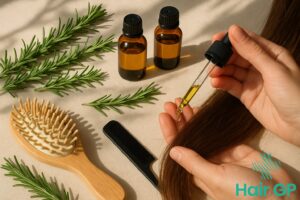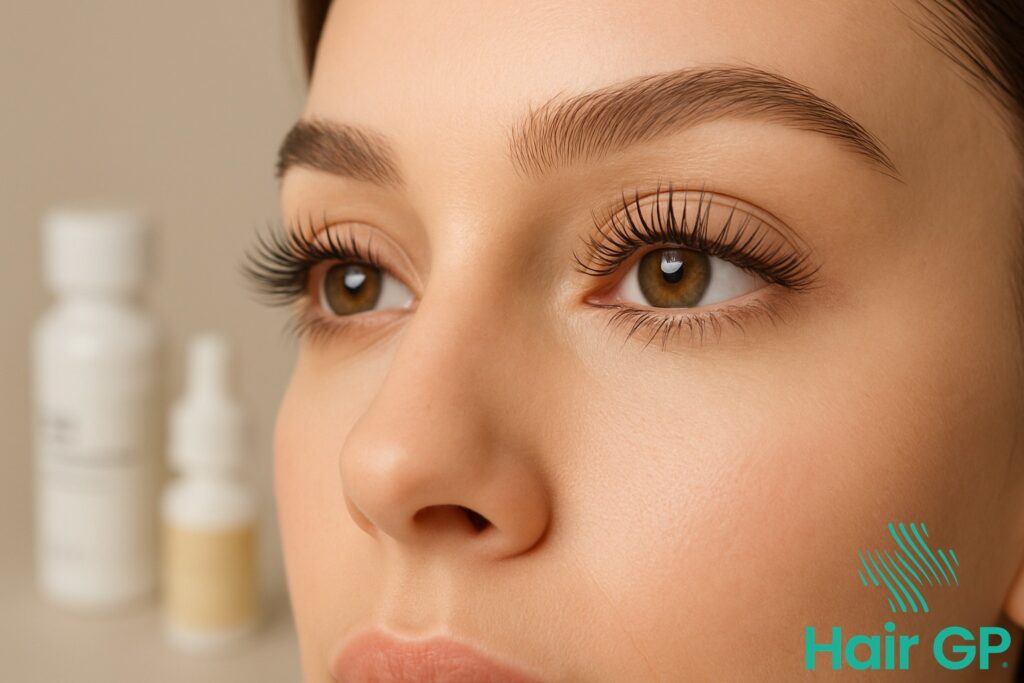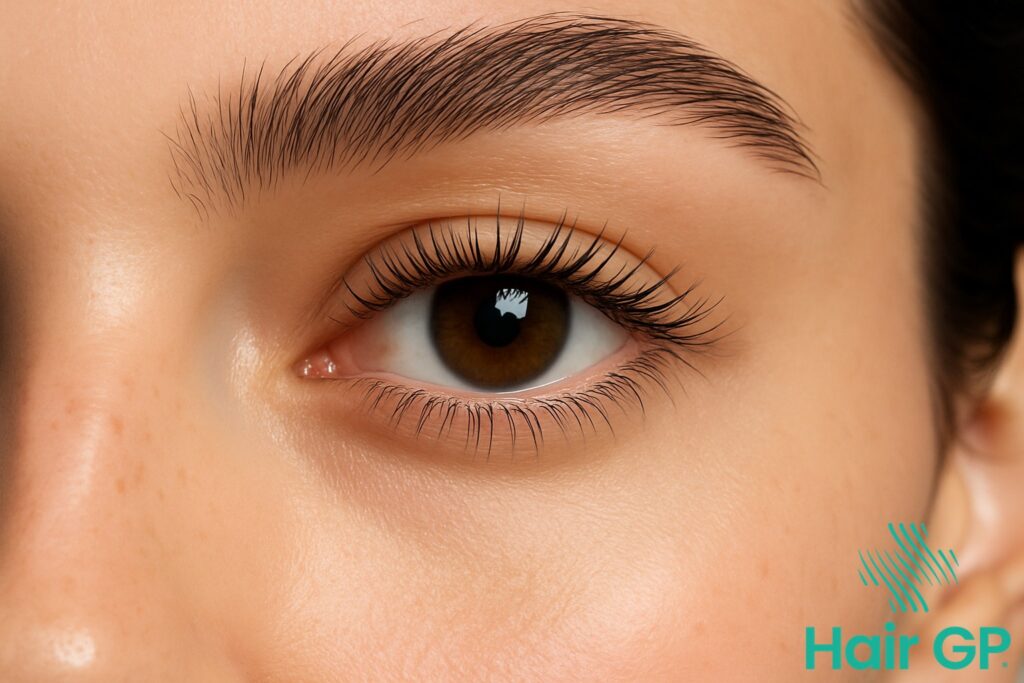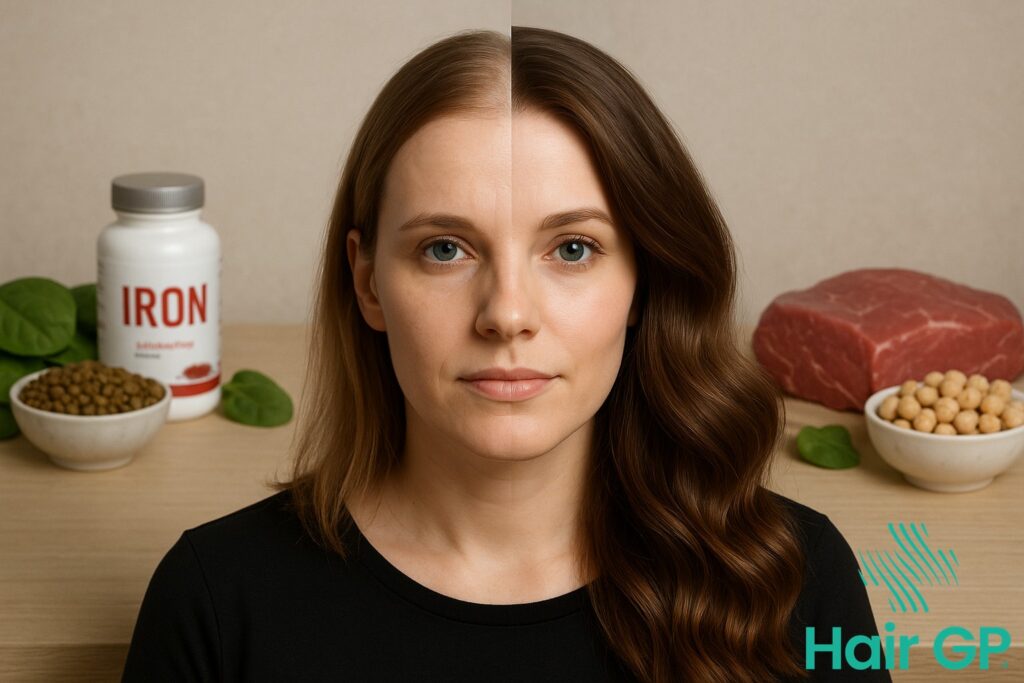Estimated reading time: 9 minutes
Unveiling Rosemary Oil: Nature’s Secret for Hair Growth
Rosemary oil, an essential oil derived from the fragrant Rosmarinus officinalis plant, has captured the attention of hair enthusiasts worldwide. Its growing popularity is fuelled by anecdotal evidence and scientific research suggesting its potential to promote hair growth, improve scalp health, and prevent hair loss. This natural elixir, celebrated for centuries for its therapeutic properties, is making a modern resurgence as a key player in hair care routines.

Table of contents
- Unveiling Rosemary Oil: Nature’s Secret for Hair Growth
- Choosing the Right Rosemary Oil
- Applying Rosemary Oil to Your Scalp
- Incorporating Rosemary Oil into Your Hair Care Routine
- Maximising Results: Tips and Tricks
- Addressing Common Concerns and Misconceptions
- Conclusion
- Scientific Studies & Review Articles
- Other Resources:
- Hair Loss GP Related Links
The Science Behind the Hype: How Rosemary Oil Works Its Magic
The magic of rosemary oil lies in its unique composition. It is rich in active compounds like ursolic acid, which has been shown to stimulate hair growth by increasing blood flow to the scalp and nourishing hair follicles. Additionally, rosemary oil contains carnosic acid, a powerful antioxidant that protects hair follicles from damage caused by free radicals, thereby reducing hair loss and promoting healthy hair growth.
Rosemary oil also inhibits the activity of 5α-reductase, an enzyme that converts testosterone to dihydrotestosterone (DHT). DHT is a hormone known to contribute to hair loss in both men and women. By inhibiting DHT, rosemary oil may help prevent further hair loss and even encourage regrowth in some cases.
Beyond its chemical composition, rosemary oil also boasts anti-inflammatory and antimicrobial properties that help soothe scalp irritation, reduce inflammation, and combat dandruff and other scalp conditions, creating a healthy environment for hair growth.
Recommended Read
Choosing the Right Rosemary Oil
Not all rosemary oils are created equal, and selecting the right one is crucial for maximising its benefits.
Essential Oil vs. Carrier Oil Infusions: Which is Best for Hair?
Rosemary essential oil is a concentrated form of the oil extracted through steam distillation. It is highly potent and should always be diluted with a carrier oil like coconut, jojoba, or olive oil before applying it to the scalp.
Rosemary oil infused in a carrier oil is a gentler option for those with sensitive skin or those new to using rosemary oil. It’s already diluted, making it easier to apply directly to the scalp without worrying about irritation.
Quality Matters: Selecting the Purest Rosemary Oil for Optimal Results
Look for rosemary oil that is 100% pure, therapeutic grade, and sourced from reputable brands. Avoid oils that contain synthetic ingredients or fillers. Organic rosemary oil is a good choice as it ensures that the plant was grown without harmful pesticides or fertilisers.
DIY Rosemary Oil Infusion: Harnessing the Power at Home
For a truly natural and cost-effective option, you can make your own rosemary oil infusion at home. Simply combine dried rosemary leaves with a carrier oil of your choice and let it steep for a few weeks. This process allows the beneficial compounds of rosemary to infuse into the oil, creating a potent hair growth elixir.
Recommended Read
Applying Rosemary Oil to Your Scalp
The most effective way to use rosemary oil for hair growth is through regular scalp massages.
The Scalp Massage Method: A Step-by-Step Guide
- Start with clean, dry hair.
- Dilute a few drops of rosemary essential oil (or use rosemary-infused oil) with a carrier oil of your choice.
- Apply the mixture to your scalp and gently massage in circular motions for 5-10 minutes.
- Leave the oil on your scalp for at least 30 minutes, or ideally, overnight.
- Wash your hair with a mild shampoo and conditioner.
Diluting for Safety: Finding the Perfect Balance for Your Scalp
The proper dilution ratio for rosemary oil depends on your skin sensitivity. A general guideline is to use 5 drops of rosemary essential oil per ounce of carrier oil. However, if you have sensitive skin, start with a lower concentration and gradually increase it as tolerated.
Frequency and Timing: How Often and When to Apply for Maximum Benefits
For optimal results, massage rosemary oil into your scalp 2-3 times per week. The best time to apply it is before bedtime, as it allows the oil to work overnight while you sleep.
Incorporating Rosemary Oil into Your Hair Care Routine
In addition to scalp massages, there are several other ways to incorporate rosemary oil into your hair care routine.
Enriching Your Shampoo and Conditioner: A Simple Hack
Add a few drops of rosemary essential oil to your favourite shampoo or conditioner. Shake well before use to ensure the oil is evenly distributed.
Crafting Powerful DIY Hair Masks with Rosemary Oil
Combine rosemary oil with other hair-healthy ingredients like coconut oil, honey, eggs, or avocado to create nourishing hair masks. Apply the mask to your hair and scalp, leave it on for 30-60 minutes, and then rinse thoroughly.
Leave-In Treatments: Overnight Nourishment for Your Scalp and Hair
Create a leave-in treatment by diluting rosemary oil in a carrier oil and applying it to your scalp and hair before bedtime. This allows the oil to work its magic overnight, leaving your hair feeling soft and nourished in the morning.
Maximising Results: Tips and Tricks
While rosemary oil alone can work wonders for hair growth, combining it with other ingredients and practices can amplify its effects.
- Combining Rosemary Oil with Other Ingredients for Synergistic Effects:
Pairing rosemary oil with other hair-healthy ingredients can create a powerhouse of nutrients for your scalp and hair. Some effective combinations include:
Peppermint oil:
Adds a stimulating and cooling sensation to the scalp, further boosting blood flow.
Cedarwood oil:
Known for its calming properties and ability to balance sebum production.
Coconut oil:
Provides deep hydration and nourishment to the scalp and hair.
Aloe vera:
Soothes the scalp, reduces inflammation, and promotes hair growth.
Consider experimenting with different combinations to find what works best for your hair type and needs.
- Dietary and Lifestyle Habits that Boost Hair Growth Alongside Rosemary Oil:
A healthy diet rich in vitamins, minerals, and protein is essential for hair growth. Incorporate foods like eggs, fish, nuts, seeds, and leafy green vegetables into your diet. Additionally, managing stress levels through exercise, meditation, or yoga can also benefit hair growth. Remember, healthy hair starts from within!
Recommended Read
- Tracking Progress: Monitoring and Adjusting Your Rosemary Oil Routine:
Keeping a journal or taking photos can help you track your progress and assess the effectiveness of your rosemary oil routine. Remember, hair growth takes time, so be patient and consistent with your application. If you notice any adverse reactions, adjust the frequency or dilution of the oil.
Addressing Common Concerns and Misconceptions
- Is Rosemary Oil Safe for All Hair Types?
Rosemary oil is generally safe for all hair types when used correctly. However, those with sensitive skin should always do a patch test before applying it to the scalp.
- Potential Side Effects and Precautions:
Although rare, some individuals may experience scalp irritation, allergic reactions, or headaches from using rosemary oil. If you experience any adverse reactions, discontinue use and consult with a healthcare professional. Pregnant and breastfeeding women should consult their doctor before using rosemary oil.
- Debunking Myths: Separating Fact from Fiction:
While rosemary oil holds promise for hair growth, it’s not a miracle cure. Claims of overnight results or reversing complete baldness are unrealistic. Rosemary oil works best as part of a holistic approach to hair care, combined with a healthy diet, stress management, and proper hair care practices.
Conclusion
Rosemary oil is a natural powerhouse for hair growth, supported by scientific evidence and centuries of traditional use. While it may not be a miracle cure, incorporating rosemary oil into your hair care routine can significantly improve your hair’s health, thickness, and overall appearance. Remember to use it consistently, combine it with other healthy hair practices, and consult with a healthcare professional for personalised advice. Embrace rosemary oil as your naturally for luscious locks!
FAQs: Rosemary Oil for Hair Growth
Yes, rosemary oil can be used in conjunction with other hair growth treatments like minoxidil or hair growth serums. However, it’s always best to consult with a healthcare professional before combining treatments.
Look for 100% pure, therapeutic-grade rosemary oil from reputable brands at health food stores, pharmacies, or online retailers.
It’s advisable to consult with your doctor before using rosemary oil during pregnancy or breastfeeding, as its safety in these situations hasn’t been thoroughly studied.
While rare, some individuals may experience scalp irritation or allergic reactions to rosemary oil. Always perform a patch test before using it on your scalp and discontinue use if you experience any adverse effects.
Rosemary oil is not a miracle cure for hair loss. While it can promote hair growth and improve scalp health, it may not be able to fully reverse extensive hair loss or baldness.
Both can be beneficial, but rosemary essential oil should always be diluted in a carrier oil before applying it to the scalp. Rosemary-infused oil is a pre-diluted option that may be more convenient for some users.
Patience is key when it comes to hair growth. While some individuals may notice improvements in scalp health and hair thickness within a few weeks, significant hair growth typically takes several months of consistent use.
Yes, rosemary oil is generally safe for colored or chemically treated hair. However, as with any new product, it’s wise to perform a patch test first to ensure you don’t experience any adverse reactions.
Yes, leaving diluted rosemary oil in your hair overnight can be beneficial, as it allows for extended contact with the scalp and hair follicles. Consider using a shower cap to protect your pillowcase.
For optimal results, it’s recommended to massage diluted rosemary oil or use rosemary-infused products on your scalp 2-3 times per week. However, you can adjust the frequency based on your scalp’s sensitivity and individual needs.
External Sources
Scientific Studies & Review Articles
Citations and URLs for Rosemary Oil and Hair Growth:
Clinical Studies:
- Panahi, Y., Taghizadeh, M., Marzony, E. T., & Sahebkar, A. (2015). Rosemary oil vs minoxidil 2% for the treatment of androgenetic alopecia: a randomised comparative trial. Skinmed, 13(1), 15-21.
- Hay, I. C., Jamieson, M., & Ormerod, A. D. (1998). Randomised trial of aromatherapy. Successful treatment for alopecia areata. Archives of Dermatology, 134(11), 1349-52.
Review Articles:
- Oliveira, J. R., Camargo, S. E. A., & Boaventura, G. T. (2017). The essential oil of Rosmarinus officinalis L.: a review of its phytochemical and pharmacological profile. Phytotherapy Research, 31(10), 1449-1462.
Other Resources:
- The National Center for Complementary and Integrative Health (NCCIH): Aromatherapy: https://nccih.nih.gov/health/aromatherapy
- The Herbal Academy: Rosemary for Hair Growth


